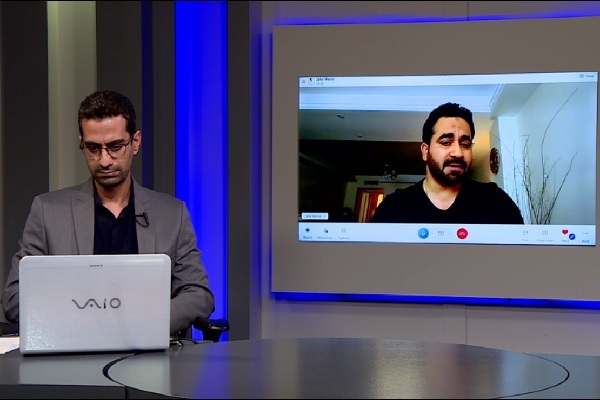Taliban Has Failed in Fulfilling Promises, Needs to Take Three Steps to Earn Int’l Recognition: Journalist

It is more than one year since the Taliban came back to rule Afghanistan and the country is now dealing with great challenges, and above all, is the humanitarian crisis that threatens the lives of millions of Afghans.
To further discuss the situation, IQNA reached out to Syed Zafar Mehdi, a Tehran-based journalist, blogger, commentator and author. He has reported for more than 12 years from India, Afghanistan, Pakistan, Kashmir, and Iran for leading publications worldwide.
History reveals why international community has not recognized Taliban
Asked about the reason behind the lack of any international recognition for the Taliban since they took power in Afghanistan in August 2021, Syed Zafar Mehdi noted that “The answer lies in history.”
“When the group was ruling Afghanistan in the late 1990s it was infamous for committing the most famous brutal human rights abuses. Women had severe restrictions at that time and the government was exclusively Pashtun.”
The Taliban promised this time to change but has so far failed to “walk the talk,” added Mehdi.
According to the journalist, the Taliban should do three things to earn international legitimacy; 1) forming an inclusive government that represents all ethnic groups 2) empowering women 3) upholding the rule of law
Taliban facing multiple challenges
According to the journalist, the Taliban is meeting several challenges at the moment.
“Worsening humanitarian crisis is the biggest challenge that makes the job of running the country for the Taliban extremely difficult,” he said.
The growing number of terror attacks with the resurgence of the Daesh terrorist group, resistance in Panjshir province, and stopping brain drain are among other challenges of the Taliban, he added.
Attacks against Hazara Shias not new
Asked about the “willingness and capacity” of the Taliban to confront Daesh attacks against ethnic minorities, especially Hazara Shias, Mehdi noted that this minority group has always been a target of attacks in history.
Hazara Shias have always been persecuted by state and non-state actors in Afghanistan, he said, pointing to notorious Pashtun ruler Abdur Rahman Khan’s genocide against the ethnic minority in the 1890s.
This cool-blooded savagery was adopted by other Pashtun rulers as well as terrorist groups that mushroomed in the area, added the commentator.
Daesh terrorist group also started targeting this minority group in 2014, he said, naming some possible reasons behind the attacks such as avenging the defeat in Syria to the Resistance Axis which includes the Hazara-led Fatemiyoun brigade and also to fuel the flame of sectarianism in Afghanistan.
Taliban’s approach towards Hazara Shias has definitely changed because they seek political legitimacy at home and abroad, he noted, adding that forming an inclusive government can be a “good beginning to fight back against Daesh and pave way for peace and stability in the country.”
Int’l community should pressure US, help Afghans
Mehdi also pointed to the need to hold Washington responsible for the damages it inflicted on Afghanistan in the past decades.
“One year after irresponsible US withdrawal from Afghanistan, Taliban is really struggling with a rapidly worsening humanitarian crisis in the country, crippling US sanctions and shortage of funds,” he said, noting that millions of Afghans lack any means of livelihood and the banking system is dysfunctional.
“The worst humanitarian crisis in modern history is unfolding right now, which is even worse than what we have seen in Syria or in Yemen.”
Many Afghans attribute this condition to the freezing of their assets by the United States, noted the author, adding, the US sanctions have also devastated the country’s banking system and blocked the international humanitarian agencies from delivering aid to struggling Afghans.
“Americans invaded this country, occupied it for 20 years, made the country economically subservient, and eventually left it in an irresponsible way and in a bad state, and now they continue to kill Afghans by freezing their assets,” he lamented.
Pressuring the United States and its allies to release the money that belongs to the people of Afghanistan and helping the Taliban provide relief to the poor people of Afghanistan who have suffered in the past 40 years are among the responsibilities of the international community with regard to Afghanistan, according to Syed Zafar Mehdi.
Interview by Mohammad Ali Haqshenas
 Most Commented
Most Commented 


